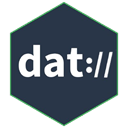Exploring HTTP Alternative: A Decentralized Web Awaits
The Hypertext Transfer Protocol (HTTP) has been the cornerstone of the World Wide Web since its inception in 1989 by Tim Berners-Lee. As the protocol responsible for exchanging hypertext, HTTP/1.1 and its successor HTTP/2 have powered countless interactions. However, with increasing concerns about centralization, censorship, and data control, many are seeking robust HTTP alternative solutions that offer a more distributed and resilient internet experience. This article delves into leading alternatives that are shaping the next generation of the web.
Top HTTP Alternatives
The quest for a more open and decentralized internet has led to the development of several innovative protocols and platforms. These alternatives offer enhanced privacy, censorship resistance, and improved data sovereignty, moving beyond the traditional client-server model.

IPFS
IPFS (InterPlanetary File System) is a global, versioned, peer-to-peer filesystem that combines concepts from Git, BitTorrent, Kademlia, and the web. As a free, open-source solution available on Mac, Windows, Linux, BSD, and Self-Hosted environments, IPFS is a powerful HTTP alternative that embraces decentralization, distributed architecture, and peer-to-peer file sharing, offering a robust and resilient way to store and access data.

ZeroNet
ZeroNet offers real-time updated, peer-to-peer sites leveraging the BitTorrent network and soon, the Distributed Hash Table. This free, open-source platform runs on Mac, Windows, Linux, and Web, with self-hosting options. ZeroNet stands out as an HTTP alternative due to its decentralized nature, support for TOR, decentralized email and storage, and its use of Python and JavaScript.

Freenet
Freenet is free, open-source software that enables anonymous file sharing, browsing, and publishing of "freesites." Available on Mac, Windows, Linux, and BSD, Freenet is an excellent HTTP alternative for those prioritizing privacy, offering full anonymity, decentralized architecture, and secure peer-to-peer file sharing without ads.

Dat
Dat is a non-profit, secure, and distributed package manager for data. It can version data locally or share and sync data over the internet, making it a strong HTTP alternative for data management. As a free, open-source tool for Mac and Linux, Dat features decentralized and distributed file sharing and syncing, built on Electron/Atom Shell and JavaScript.

Solid
Solid (derived from "social linked data") proposes a set of conventions and tools for building decentralized Web applications based on Linked Data. This free, open-source project, accessible on Mac, Windows, Linux, Web, and Self-Hosted environments, serves as a significant HTTP alternative by championing decentralized and distributed web architectures.

IPZN
IPZN is a platform designed to grow the decentralized web through an incentivized decentralized search engine. It provides unified functionalities extended by a framework. Available as a free, open-source solution for Windows, Linux, Web, Android, and Self-Hosted setups, IPZN acts as an HTTP alternative by focusing on blockchain, decentralized storage, and distributed systems.

Decentralized Internet
The Decentralized Internet project aims to foster a new internet that is more open, free, and censorship-resistant. This free, open-source initiative supports a wide range of platforms including Mac, Windows, Linux, Web, Android, and Self-Hosted setups. As an encompassing HTTP alternative, it focuses on blockchain, decentralized computing, and parallel computing to reshape web development.
The landscape of web protocols is evolving, with many compelling HTTP alternative options emerging to address modern challenges. Whether your priority is privacy, censorship resistance, or enhanced data control, exploring these decentralized solutions can help you find the best fit for your specific needs and contribute to a more robust and resilient internet.